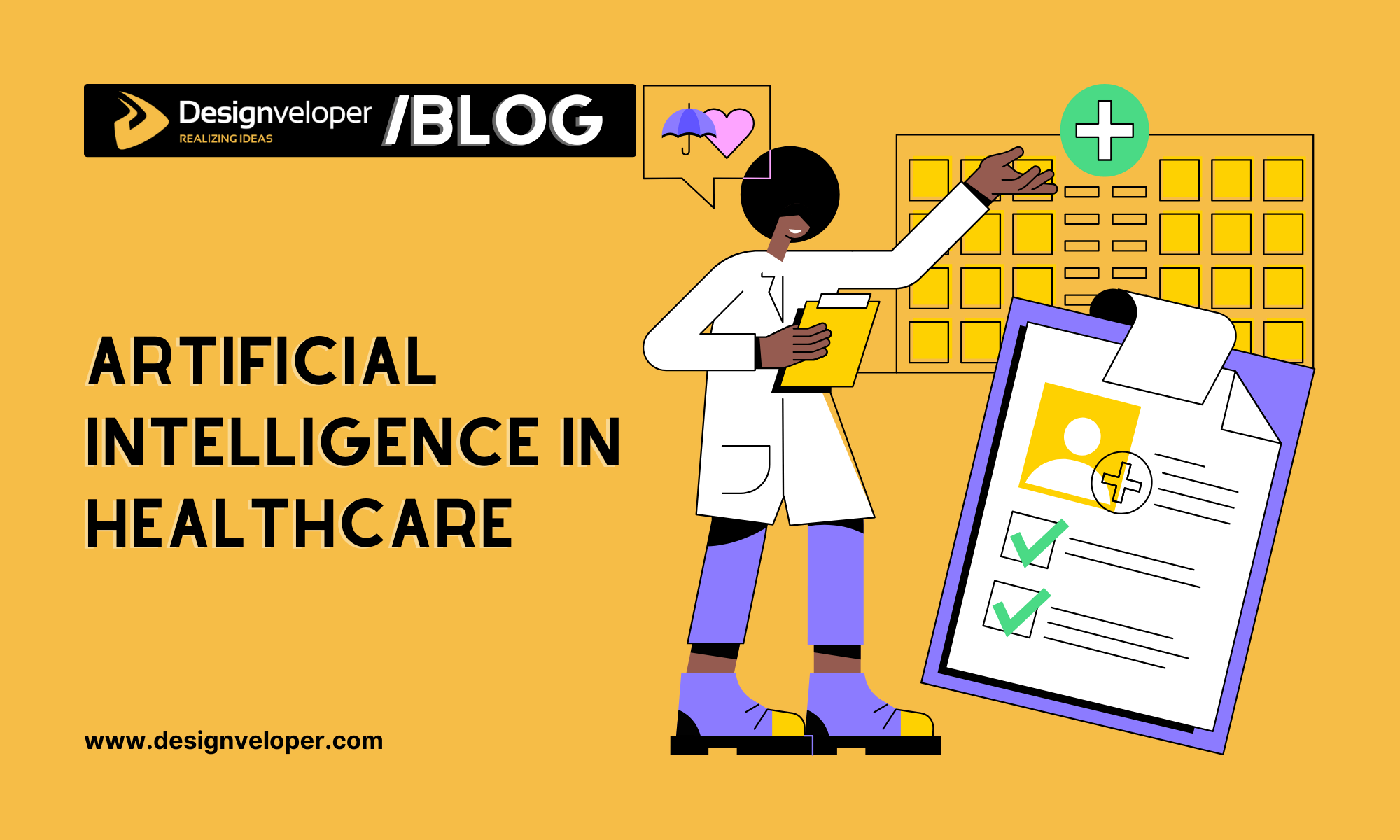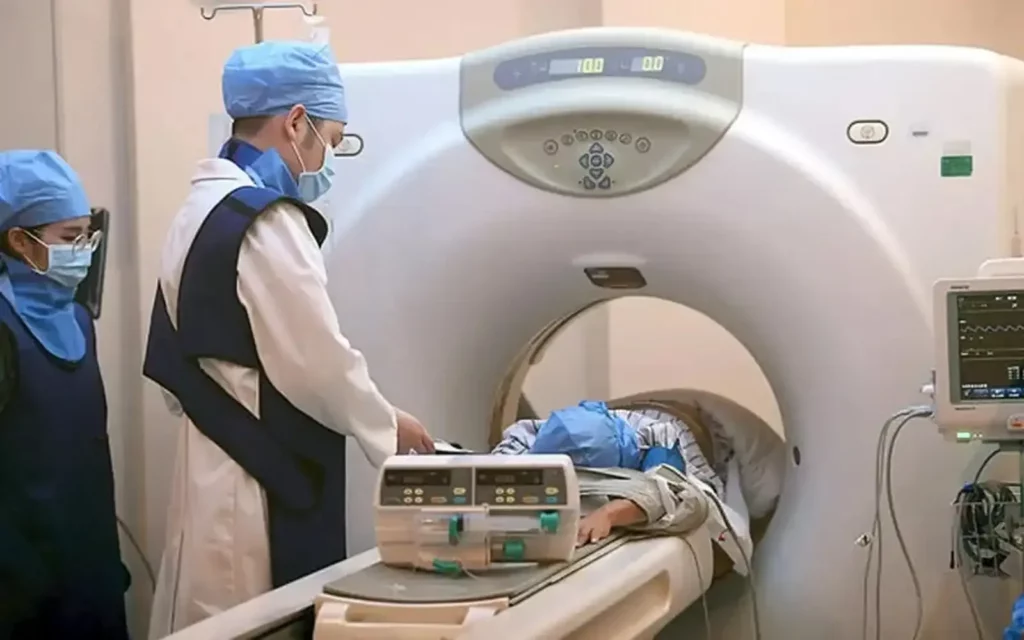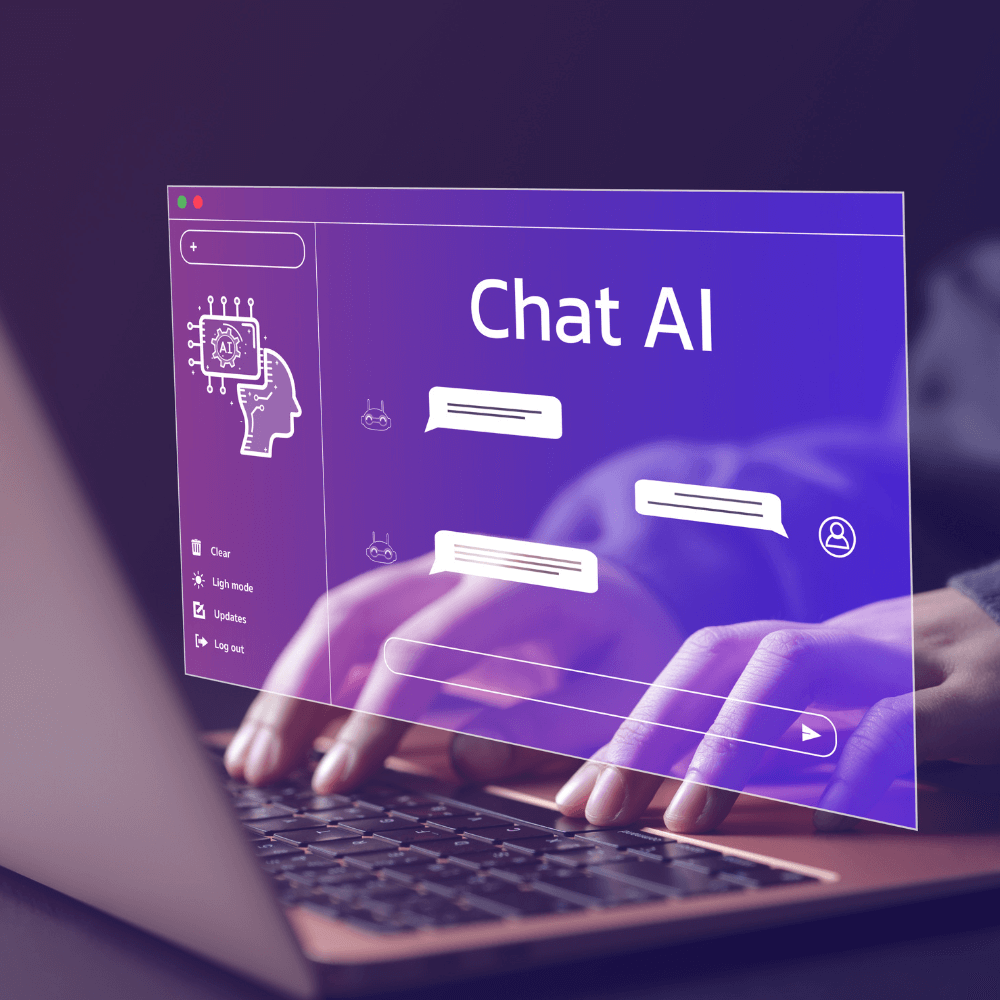Artificial Intelligence in Healthcare: How AI is Revolutionizing Patient Care

Artificial intelligence in healthcare is transforming patient care in remarkable ways. AI healthcare market has expanded substantially and is predicted to total $32.3 billion in 2024. The growth is fuelled by AI’s ability to strengthen the diagnostics, base the treatments on an individual patient data and ease the manual work.
The AI technology is so far that it can evaluate medical images with a very high degree of precision. This helps detect diseases early. Deloitte and McKinsey have indicated that the adoption of AI has increased rapidly. Some 75% of top healthcare companies are testing its generative AI, or planning to expand it. However, this has nothing to do with technology. The objective is to improve the patient care and upgrade a healthcare system.
However, AI is improving healthcare in many simple ways. It can be used to predict patient outcomes and provide care for chronic disease. With advances in AI patient care will revolutionize with healthcare becoming more accessible, affordable, and efficient.
The Role of AI in Diagnostics
Artificial intelligence in healthcare is transforming diagnostics. Speed and accuracy of diagnosis is enhanced with the use of AI tools that give better patient outcomes. For example, GE Healthcare’s Edison AI platform helps with diagnostic imaging by eliminating noise in MRI and ultrasound images. It speeds the process for doctors to make faster clearer diagnoses.
Access to high quality diagnostics is also offered by the use of AI. Advanced imaging comes to rural clinics provided by portable AI enabled devices such as handheld ultrasounds. This is crucial, as the World Health Organization estimates a 10 million shortage of healthcare workers by 2030. And AI helps this gap by allowing this complex scan to be completed by the non-specialists.
Besides that, AI diagnostics provide significant reduction of the healthcare cost. Administering time and resources on administrative tasks allows caregivers to automate them, saving time for the very purpose of taking care of their patients. Predictive AI models are also useful for the early recognition of diseases, as well as avoiding costly treatment in the future.
AI in Medical Imaging: Tools and Accuracy
Artificial intelligence (AI) is transforming medical imaging, enhancing diagnostic accuracy and efficiency. The algorithm looks at the imaging data and finds patterns, abnormal changes which could be overlooked by the human eye. This technology is used to detect the presence of cancer or cardiovascular conditions early and treat it.
The recent statistics show that the global AI in healthcare market was valued at $22.4 billion in 2023, which grew from $1.1 billion in 2016, and it is tipped to increase up to $188 billion by 2030. Depending on the changes this will make, it may shorten hospital stays by more than 20 percent, potentially saving $40 billion each year. The CAGR of 26.5 percent is anticipated for the AI-integrated medical imaging market from 2021 to 2028.

Diagnostic radiology is advanced by AI tool such as image classification and segmentation. For instance, if there is a superficial or full thickness burn, AI can tell you and supply you with actionable insights. Assessing risky nodules in lung cancer detection, the AI looks for three dimensional texture and fine grained nodule features.
Adams et al (JACR) published that in a context of guideline based management of incidental nodules found at chest CT, the use of ML based analysis can greatly decrease false positives. In this way, fewer unnecessary biopsies and faster treatment for cases of malignancy.
AI is also applicable for precision medicine: merging of patient history, genetic information and imaging data to create patient profiles, corresponding to personalized treatment plans. This enables the streamlining of workflows, decrease in diagnostic errors, and better patient outcomes.
Example: Early Disease Detection with AI-Powered Analysis
Artificial intelligence in healthcare is transforming diagnostics. In this case, AI powered analysis is able to detect the diseases much earlier, offering improved patient outcomes. For example, AI-driven electrocardiogram (ECG) age prediction can reveal risks for heart disease and develop Alzheimer’s and cancer before you have symptoms. This way of reclassifying conventional risk assessments standardizes these more accurate predictions.
In a The Lancet study, published recently, AI has the potential to detect cardiomyopathies early. Using state of the art AI cardiac imaging was able to identify heart ailments. This includes as hypertrophic cardiomyopathy (HCM) and transthyretin amyloid cardiomyopathy (ATTR-CM) before it would be seen by conventional methods. Over 33,000 patients were studied and we proved that AI can spot diseases over 2 and a half years prior to formal diagnoses.
It also improves medical image analysis. Placement of machine learning algorithms is suggested to analyze accurately X-rays, CT scans or MRIs. For instance, AI models have an accuracy of detecting breast cancer in mammograms of 94%, while reducing false positives and false negatives. An earlier detection of the cancer is critical to better treatment and higher survival rate.
Personalized Treatment Plans
Artificial intelligence in healthcare is transforming patient care by enabling personalized treatment plans. These plans take advantage of the power of AI to look at wide swaths of medical data to make diagnoses and treatments that are more precise and individual. Specifically, a survey by Deloitte concluded that 53 percent of customers trust generative AIs to enhance accessibility to healthcare.
These AI driven personalised treatment plans take into account one’s genetic make up, lifestyle, and their medical history. With this way of treating cancer, treatments are effective and the side effects are low. For example, the International Consortium for Personalised Medicine (ICPerMed) expects that personalized medicine will within this decade bring healthcare into line more closely with the ultimate goal of ‘more effective and equitable healthcare’.
Furthermore, AI can predict how patients will respond to different treatments. This helps medical providers choose the best options. The Personalized Medicine Coalition highlights several benefits of personalized medicine. These include early disease detection and tailored treatment for each patient.
How AI Tailors Treatments to Individual Patients
Artificial intelligence in healthcare is transforming patient care by creating personalized treatment plans. By analyzing huge quantities of patient data, including genetic information, lifestyle factors, and medical history, AI treats each of them uniquely, based on their own needs. By taking this approach, patients will receive the best care for their individual needs.
The AI in the healthcare market is projected to reach $188 billion by 2030 with a compound annual growth rate (CAGR) of 37% during 2022 to 2030 as per recent statistics. The rapid growth indicates the growth in adoption of AI technologies in healthcare.

The AI tool ‘DeepMerkel’ is just one example of AI’s impact, as it can predict the course and severity of grade 3 and 4 Merkel cell carcinoma. DeepMerkel analyzes personal and tumor specific features to let doctors create more personalized treatment plans for greater patient outcomes.
An example is present in oncology. An AI model developed by researchers at the University of Duisburg-Essen and LMU Munich integrates clinical history, lab results, imaging, and genetic data to support clinical decisions. This model helps personalize cancer therapy and has been successfully applied to lung cancer patients.
Eye care is also covered by AI. AI algorithms being used in Chandigarh based Prosight Eye Hospital to analyze eye conditions with unmatched accuracy and give out personalized treatment plans to patients. Such an approach guarantees that the patients get the most adequate care for their individual vision needs.
Example: AI in Oncology for Personalized Cancer Treatment
Personalized cancer treatment is one of the breakthroughs made by artificial intelligence (AI). AI tools scan through huge amounts of patient data and adjust treatments just for the patient. For example, such work in development is the research carried out recently by researchers from the University of Duisburg-Essen and LMU Munich which developed an AI model that combined medical history, imaging and genetic data for better informed treatment decisions. The data from greater than 15,000 patients with 38 different solid tumors were used to train this model.
AI further helps in NSCLC survival prediction. Serial CTRS (AI tool to stratify patients into high and low risk risk groups) was given FDA breakthrough status. Deep learning is applied to diabetic patients’ diagnostic imaging scans and predicts long term survival outcomes with this tool.
Moreover, Stanford’s Multimodal AI Model combines clinical notes and images to predict patient outcomes and treatment responses. This model tested on more than 8200 patients is promising in advancing precision oncology.
Administrative Efficiency
Artificial intelligence in healthcare is transforming administrative tasks. This streamlines workflows and reduces costs by 25 — 30%. By offering this efficiency, healthcare professionals can concentrate more on patient care. For example, if AI predictive models can help to activate patients 30% less and increase the health plan revenues by 7%, both of these would boost the overall bottom line.
AI also automates those recurring tasks of scheduling and billing. It automates the work and cuts out tedious tasks, as well as errors. Deloitte have reported that 53% of consumers believe AI will help give better access to healthcare. Furthermore, AI improves the ease with which large chunks of patient information can be managed.
AI also supports decision-making processes. It allows predicting with accuracy and has the potential of steering administrators to make informed decisions. An example, AI analytics can detect data patterns of patients, that helps in better resource allocation. For efficient healthcare facility management, this capability is critical.
AI Streamlining Administrative Tasks in Healthcare Facilities
Artificial intelligence in healthcare is transforming administrative tasks, making operations more efficient. The use of AI solutions allows for automating routine processes (appointment scheduling, billing, etc.) and eliminating the errors that occur in the process, as well as saving the time associated with these tasks. Robotic Process Automation (RPA) is an example of a technology that speeds up and ensures accuracy when it comes to completing repetitive tasks which, significantly, eliminates the administrative burden on the staff.

Another application of AI is the area of predictive analytics that assists in predicting patient volumes and the optimal use of resources. Such an approach based on the data is beneficial for patient flow management and resource utilization. Analysing the statistics of the report, Deloitte states that 75 percent of leading healthcare companies are experimenting with or planning to scale generative AI across their operations.
The communication and collaboration among the healthcare providers are also improved by AI. Natural Language Processing (NLP) algorithms allow for insights to be gleaned from unstructured text data like clinical notes allowing for better care coordination. For example, Helping hand foundation of Hyderabad uses an AI health app to monitor key health metrics and generate alerts on the anomalies.
Automating administrative workflows can help decrease costs in healthcare facilities by 25 – 30% and help allocate more resources in better caring for the patient. The use of AI in healthcare administration is not just making efficiency but also improving the quality of patient’s care.
Example: Reducing Paperwork and Improving Patient Management
Artificial intelligence in healthcare is transforming administrative tasks. AI systems speed up time and reduce the chance of errors in routine paperwork and events. AI, for instance, facilitates the electronic health records (EHR) with electronic data entry and retrieval. This frees up the healthcare professionals from doing tedious work that takes away time that they can spend on patient care.
Gartner’s study also points out that AI can reduce administrative costs by as much as 50%. Hospitals that utilize AI for documentation claim that they are 30 percent less documents, to be precise. For example, the AI system at Mayo clinic reduced 40% of their administrative tasks. The staff were freed up to spend more time with patients.
Also, AI predicts the patient’s needs. Predictive analytics predict those patients who are likely to be readmitted. It is a proactive way to improve patient outcomes, decrease hospital stay. A good example of this is that AI algorithms at Johns Hopkins Hospital predict patient deterioration and provide early intervention.
Conclusion
In conclusion, artificial intelligence in healthcare is transforming patient care in unprecedented ways. The incorporation of AI in healthcare allows healthcare providers to accurately diagnose their patients, give patients personalized treatment plans, and be more efficient with administrative tasks. For instance, with ODC, one of our healthcare projects, we revolutionized the way patients and doctors work together, making the many conveniences of the modern world accessible and convenient now to men of science also. In addition to that, our AI development services are contributing to medical research and are bringing down patient output. AI is already starting to improve healthcare, while becoming more patient focused, efficient and affordable. AI is the future of healthcare.

















































